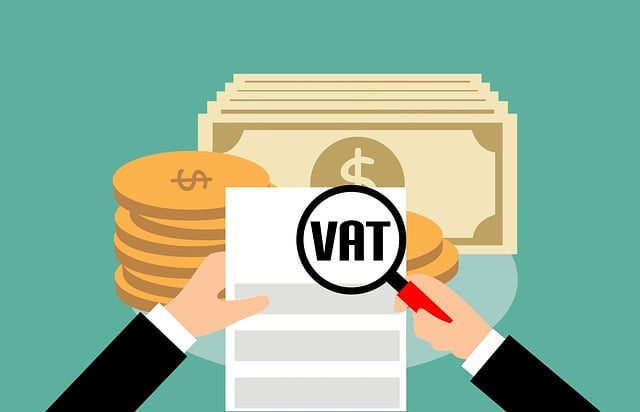Capital gains tax, a key component of tax systems, taxes profits from asset sales like stocks and property, with rates varying by holding period. Complexity arises from asset types, personal vs business ownership, and senior citizen benefits. Navigating this requires understanding diverse asset classes, deductions, and timing sales. Effective record-keeping is crucial for accurate reporting and strategic planning. Seek professional advice for tailored guidance on inheritance tax and investment strategies.
“Unravel the complexities of capital gains tax with our comprehensive guide. Learn how this tax impacts your investment profits and explore essential strategies to optimize your financial position. From understanding the basic concepts to navigating record-keeping, we cover all you need to know. Discover who’s liable, how it’s calculated, and the various types of capital assets. Additionally, find out how to minimize CGT, avoid common mistakes, and ensure compliance with tax regulations.”
- Understanding Capital Gains Tax: Basics Explained
- Who Needs to Pay and How Is It Calculated?
- Types of Capital Assets and Their Tax Treatments
- Strategies to Minimize Your CGT Liability
- Record-Keeping and Documentation Requirements
- Common Mistakes to Avoid When Filing
Understanding Capital Gains Tax: Basics Explained

Capital gains tax is a crucial aspect of understanding tax systems and managing your investments. It’s a tax levied on profits made from selling an asset, such as stocks, bonds, or property, that has increased in value over time. The basic concept behind this tax is to ensure that individuals and businesses are taxed on their capital gains, providing a source of revenue for governments while promoting efficient use of resources.
When it comes to understanding tax systems, capital gains tax can be complex due to various factors like holding periods, asset types, and individual circumstances. For example, short-term capital gains might be taxed at higher rates than long-term gains. Moreover, strategies like tax loss harvesting can help optimize your tax liability by offsetting capital gains with losses from other investments. Even property taxes 101 involve unique considerations, as real estate transactions have specific rules and deductions. Visit us at inheritance tax considerations tax strategies for investors anytime to explore these nuances and make informed decisions regarding your financial future.
Who Needs to Pay and How Is It Calculated?

Who Needs to Pay Capital Gains Tax?
In general, individuals who sell an asset for more than its original cost (the basis) are subject to paying capital gains tax on the difference, known as the gain. This applies to various types of assets, including stocks, bonds, real estate, and even personal property like a car or boat. However, not everyone is obligated to pay this tax. Typically, it’s individuals who hold assets in their personal capacity rather than through a business structure that are responsible for capital gains tax payments.
The calculation involves determining the gain by subtracting the basis from the sale price. The tax rate applied to this gain depends on how long the asset was held. Short-term capital gains (assets held for one year or less) are usually taxed at ordinary income rates, while long-term gains (held for more than a year) receive favorable treatment, often taxed at lower rates. Additionally, certain groups like senior citizens may qualify for tax benefits and exemptions on capital gains, further complicating the calculation. It’s essential to consider these factors when analyzing a profit and loss statement and exploring business expense deductions or tax credits for energy efficiency. For comprehensive guidance, visit us at double taxation agreements anytime.
Types of Capital Assets and Their Tax Treatments

When navigating the complex landscape of capital gains tax, understanding the diverse range of capital assets and their corresponding tax treatments is paramount. From stocks and bonds to real estate investments, each asset class is subject to unique regulations that can significantly impact how much you owe or may be eligible to reclaim. For instance, short-term capital gains on assets held for less than a year are typically taxed at ordinary income rates, while long-term gains on assets held for over a year often enjoy preferential treatment.
Beyond these general distinctions, other factors like the type of entity holding the asset (e.g., individual, corporation) and specific tax policies can further complicate matters. For example, how to calculate income tax deductions and credits available for certain capital losses or gains can be crucial in minimizing your overall tax burden. Moreover, tax policies impact GDP by influencing investment decisions and economic growth. Even if you’re unfamiliar with these intricacies, professionals like estate transfer planners (find us at [your website/contact information]) can guide you through the process, ensuring compliance while optimizing your financial strategies.
Strategies to Minimize Your CGT Liability

Minimizing your capital gains tax (CGT) liability is an intelligent financial strategy that involves careful planning and often, professional tax advice. By understanding the rules and utilizing available deductions, exemptions, and credits, individuals can significantly reduce their tax burden. One effective approach is to time your asset sales to take advantage of lower tax brackets, which can result in substantial savings. Additionally, offsetting capital gains with losses from other investments can also lower your overall CGT bill.
Advanced tax planning techniques, tailored to each individual’s unique financial situation, play a pivotal role in optimizing taxation and economic growth. This may include strategically distributing sales across multiple years, utilizing tax credits for low-income earners, or exploring offsetting mechanisms. For instance, contributing to retirement plans or investing in certain types of assets can provide tax advantages. Remember, it’s essential to stay informed about changing tax laws and visit us at international business tax planning any time to ensure you’re making the most of available options while adhering to taxation regulations and deadlines for compliance.
Record-Keeping and Documentation Requirements

Effective record-keeping is essential for navigating the complexities of capital gains tax. Investors should maintain detailed records of all transactions, including purchase dates, sale prices, and any associated costs or fees. This comprehensive documentation is crucial when calculating taxable gains and can significantly impact tax strategy. For instance, investors may be eligible for certain deductions or exemptions based on their specific circumstances, such as inheritance tax considerations or the tax advantages of retirement accounts.
Proper record-keeping also facilitates smart tax planning. By keeping track of transactions, investors can identify patterns and opportunities to optimize their tax positions. This might include utilizing tax deductions for students or exploring different tax strategies for investors looking to minimize their taxation. For instance, understanding when and how to realize capital gains can impact overall tax liability. Visit us at profit and loss statement analysis tax credits for energy efficiency anytime to explore further how these considerations can influence your financial decisions.
Common Mistakes to Avoid When Filing

When filing your taxes, it’s important to avoid common mistakes that can lead to penalties and delays. One frequent error is neglecting to report all capital gains, especially from investments or property sales. Always keep detailed records of your transactions, including dates, costs, and sale prices, to ensure accurate reporting. Additionally, many taxpayers overlook the potential for international tax optimization, particularly if they have global investments or are involved in homeschooling, which may offer specific tax benefits.
Another pitfall is inadequate capital gains tax management. This includes failing to understand the different tax rates applicable to various types of assets and ignoring the potential for long-term vs. short-term capital gains. It’s crucial to plan ahead, especially if you’re a freelancer or small business owner, by ensuring your tax compliance is up-to-date and considering strategic tax planning. Visit us at estate planning for taxes anytime for expert advice tailored to your unique situation.
In navigating the complex landscape of capital gains tax, understanding these key aspects is essential. From grasping the basic concepts to implementing strategies for minimizing liability, this guide equips you with the knowledge needed to efficiently manage your CGT obligations. Remember that meticulous record-keeping and avoiding common pitfalls are vital steps in ensuring compliance and optimizing your tax situation. By staying informed and proactive, you can confidently navigate the world of taxes, allowing you to focus on growing your investments while keeping your financial house in order.

Leave a Reply
You must be logged in to post a comment.